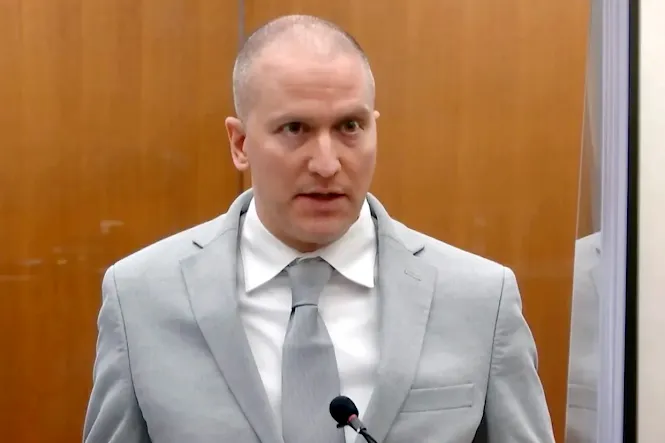Derek Chauvin Launches Fresh Appeal, Alleging New Evidence to Overturn Federal Conviction in George Floyd's Murder
Derek Chauvin, the former Minneapolis police officer sentenced to 21 years for the 2020 murder of George Floyd, is making a vigorous attempt to overturn his federal civil rights conviction.
In a recent motion filed without legal representation, Chauvin asserts the existence of new evidence, courtesy of Kansas pathologist Dr. William Schaetzel, challenging the cause of Floyd's death.
According to Chauvin, Schaetzel proposes that Floyd did not succumb to asphyxia resulting from Chauvin's actions but rather suffered complications from a rare tumor known as paraganglioma, capable of causing a fatal surge of adrenaline. Notably, Schaetzel did not physically examine Floyd's body but based his theories on a review of autopsy reports.
Chauvin contends that had he been aware of Schaetzel's perspectives in 2021, he would not have pleaded guilty, urging the judge to annul his conviction, order a new trial, or at least conduct an evidentiary hearing.
The motion includes allegations that Schaetzel had reached out to Chauvin's trial attorney, Eric Nelson, in 2021, raising concerns about information disclosure during the trial. Chauvin further claims that Nelson failed to challenge the constitutionality of the federal charge.
The heart of Chauvin's argument lies in the belief that presenting Schaetzel's evidence during the trial would have swayed the jury in his favor, emphasizing that no jury would have convicted him based on this new information.
It's worth noting that when Chauvin pleaded guilty to the federal charge in December 2021, he waived his rights to appeal except on grounds of ineffective counsel. Despite two rejections for a rehearing from a federal appeals court, Chauvin awaits the U.S. Supreme Court's decision on whether it will hear his appeal concerning his state court murder conviction.
Meanwhile, three other former officers involved in George Floyd's death have received lesser state and federal sentences for their roles.

Comments
Post a Comment